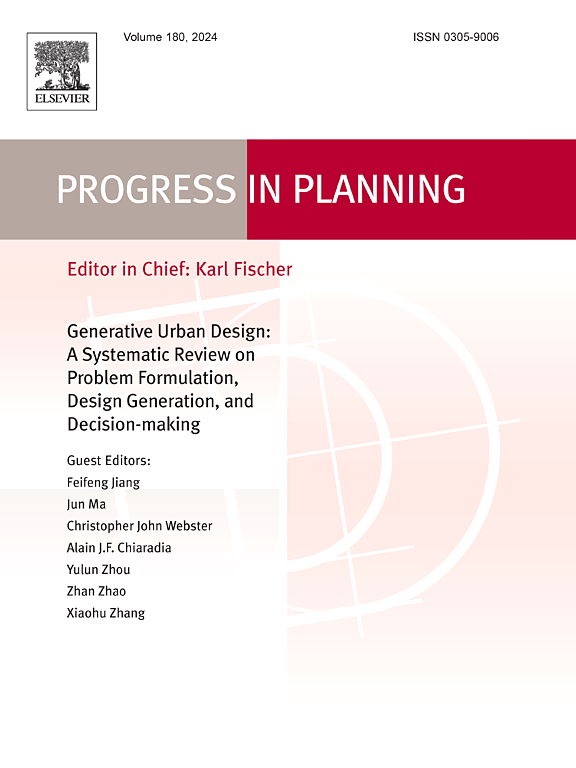Redefining planning: Emerging research specializations in Nigerian urban and regional planning
IF 5.7
1区 经济学
Q1 ENVIRONMENTAL STUDIES
引用次数: 0
Abstract
Urban and regional planning in Nigeria is undergoing a significant transformation, with increasing specialization shaping research priorities and professional practice. This study examines emerging areas of specialization in Nigerian planning research, analyzing self-reported expertise from 208 scholars across 40 institutions. Using qualitative thematic analysis, the study categorizes 87 distinct specializations into eight broad domains: Housing and Urban Development, Environmental Management and Sustainability, Transport and Infrastructure, Land Use and Regional Development, Social and Community Development, Economic and Resource Management, Health and Safety, and Innovative and Emerging Areas. Findings reveal a dominant focus on Housing and Environmental Management, reflecting urgent urbanization and sustainability concerns, while areas such as Health, Economic Planning, and Technological Innovation remain underexplored. The study also identifies institutional and regional disparities, with universities leading theoretical advancements and polytechnics emphasizing applied research. The South-West region emerges as a research hub, particularly in Housing, Environmental Sustainability, and Transport Planning. The findings contribute to international debates on generalist vs. specialist planning, highlighting both the benefits and challenges of increasing specialization. The study underscores the need for interdisciplinary collaboration and policy integration to ensure a balanced and inclusive approach to urban and regional planning in Nigeria. Future research should explore emerging fields such as climate resilience, smart urban management, and economic sustainability to address contemporary and future urban challenges.
重新定义规划:尼日利亚城市和区域规划的新兴研究专业
尼日利亚的城市和区域规划正在经历重大变革,研究重点和专业实践日益专业化。这项研究考察了尼日利亚规划研究的新兴专业领域,分析了来自40个机构的208名学者自我报告的专业知识。通过定性专题分析,该研究将87个不同的专业分为八大领域:住房和城市发展、环境管理和可持续性、交通和基础设施、土地利用和区域发展、社会和社区发展、经济和资源管理、健康和安全、创新和新兴领域。调查结果显示,主要侧重于住房和环境管理,反映了迫切的城市化和可持续性问题,而卫生、经济规划和技术创新等领域仍未得到充分探索。该研究还指出了机构和地区差异,大学引领理论进步,理工学院强调应用研究。西南地区成为研究中心,特别是在住房、环境可持续性和交通规划方面。这些发现有助于国际上关于多面手与专家规划的辩论,突出了日益专业化的好处和挑战。该研究强调了跨学科合作和政策整合的必要性,以确保对尼日利亚的城市和区域规划采取平衡和包容的方法。未来的研究应探索气候适应能力、智慧城市管理和经济可持续性等新兴领域,以应对当代和未来的城市挑战。
本文章由计算机程序翻译,如有差异,请以英文原文为准。
求助全文
约1分钟内获得全文
求助全文
来源期刊

Progress in Planning
Multiple-
CiteScore
10.70
自引率
1.60%
发文量
26
审稿时长
34 days
期刊介绍:
Progress in Planning is a multidisciplinary journal of research monographs offering a convenient and rapid outlet for extended papers in the field of spatial and environmental planning. Each issue comprises a single monograph of between 25,000 and 35,000 words. The journal is fully peer reviewed, has a global readership, and has been in publication since 1972.
 求助内容:
求助内容: 应助结果提醒方式:
应助结果提醒方式:


